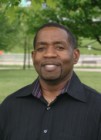 The Price family of Louisville knows what it means to give the gift of life as well as what it means to receive it.
The Price family of Louisville knows what it means to give the gift of life as well as what it means to receive it.
Andreas Price, the youngest of the three Price children, was diagnosed at the age of 15 with chronic glomerulonephritis, a type of kidney disease whose cause is unknown. Andreas remembers the day it all happened as if it was yesterday.
“I woke up on March 3, 1980 and I had a terrible headache, and blurred and double vision. I wasn’t able to really function normally and I ended up having a seizure. Luckily everyone was home getting ready for work and school.”
Andreas was rushed by ambulance to Children’s Hospital. Initially unsure of his diagnosis, they began a series of tests while they contacted his pediatrician.
“She told them to check my kidneys because she had suspected when I was younger that there were issues with my kidneys. She had run some tests when I was 9 and 12 years old but it was determined at that time that everything was okay and I was healthy.”
However, this time the tests indicated that his kidneys had shut down completely and he was started on dialysis that day.
“I was having treatments 3 nights a week in the hospital. After my condition was stabilized, I began a home dialysis regimen which allowed me more freedom because I could be flexible with scheduling treatment times. However, due to complications I was switched back to in-center treatments and a rigid treatment schedule. It was truly a life changing experience. I was an athlete but I could no longer play football and baseball. I was also making plans for college and wanted to attend the University of Southern California to study film audio/video production but the whole process took a dramatic turn once the dialysis treatments started.”
A few years later, after graduating from high school, he had a hemodialysis machine put in his home which allowed him to schedule his own 3 ½ hour treatments, 4 times a week. In spite of this, he was able to attend the University of Louisville, as a communication major, and he even pledged a fraternity, Omega Psi Phi.
However, after 5 years of dialysis, Andreas was put on the transplant waiting list. “I had adjusted so well to the regimen of balancing school and dialysis treatments that I was afraid of the major surgery, but we’re a Christian family and through prayer I realized it was time to do what I needed to do to get on the list.”
Andreas would have to wait 4 long years but he would not receive his donated kidney until after the Price family experienced firsthand what it meant to give the gift of life.
On Christmas morning, December 25, 1988 the entire Price family was in church for services. Andreas, now 23 years old and still on the transplant waiting list, was singing in the choir. He had just finished singing his mother Nancy’s favorite song when the unimaginable happened.
“My mother had high blood pressure and although she was on medication an aneurism burst in her brain.”
Nancy Price was rushed to Jewish Hospital where it took several hours for the neurologists to determine her status and condition. In the midst of all of this Andreas had to leave to go to dialysis.
“Needless to say it was a rough night from December 25th to the 26th and it changed the tenor of Christmas then and now. Our whole family was there on the 26th when we learned that my mother had been declared brain dead.”
The family had already decided that if Nancy was eligible to be a donor they would consent to donation. The decision was made easier since Nancy had made her wishes to donate known and Andreas’s father, Charles, knew all too well the issues of transplantation and suitable donors especially in the African-American community.
“There was a discussion about whether or not I should receive one of my mother’s kidneys but I had a cold so I was ineligible to undergo major surgery”, Andreas said.
On December 26th, after meeting with a transplant coordinator from Kentucky Organ Donor Affiliates (KODA), the Price family gave their consent and Nancy was able to donate her kidneys, liver and corneas.
“My mom was a teacher in the public school system. She had impacted so many lives over the years and she was such a caring, giving person that it seemed only right for her to donate. Also, you have the idea that your mother lives on in the midst of something as traumatic and tragic as this and being able to give someone else such a selfless gift helped us with our healing and grieving process.”
On May 26, 1989, five months to the day after his mother’s donation, Andreas received a phone call at work from his nephrologist telling him there was a kidney available and Andreas was a biological match.
The only information that Andreas had about his donor was that he was an older, white male from Texas. He still thinks about his donor and how his gift has blessed him these many years.
Prior to getting the transplant Andreas received another “call,” but this time it was to the ministry. “My transplant allowed me to work full-time, advance in the workplace and graduate with a second bachelor degree in theology in 1995. I was working both in the corporate world and as a minister in Louisville until the spring of 2004 when I was downsized at work and decided to return to school for a master degree in divinity.”
However, in 2000 Andreas was told that his lab tests indicated that after 11 years, the function of his transplanted kidney was starting to decline. His condition was monitored for 2 years and in December 2002 he was put back on the transplant waiting list. On March 14, 2003 he went back on dialysis treatments.
“Being familiar with the process I wasn’t frightened but I wasn’t looking forward to it either. It’s extremely surreal being on the transplant waiting list again. I have gotten 5-6 calls that a kidney was available but unlike my first experience, these times I wasn’t a match. I had to learn to deal with the disappointment but my faith gets me through.”
In the meantime Andreas has been actively educating people around the state of Kentucky about the power of organ donation as he is a donor family member, transplant recipient and currently on the transplant waiting list. One of the issues he encounters are those people who have religious concerns about donation.
“Some people believe that you need everything God gave you to be allowed into heaven. I usually tell them that if that were the case then we’d have to have all our hair and teeth or we wouldn’t get into heaven. Donation is the gift of life and there is no greater gift.”

